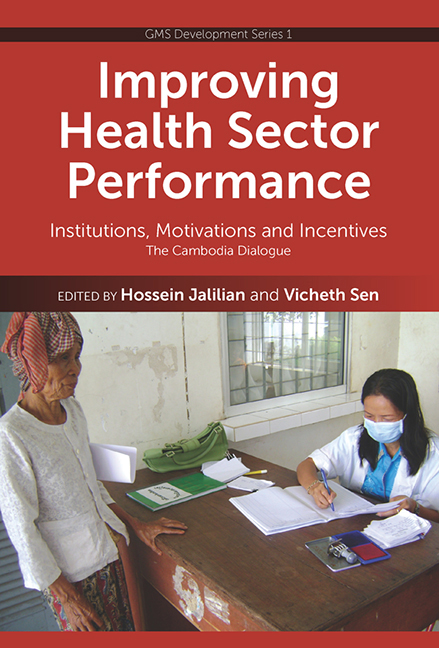 Improving Health Sector Performance
Improving Health Sector Performance from Part I - Overview
Published online by Cambridge University Press: 21 October 2015
INTRODUCTION
Before exploring theories of motivation, trust, incentives and regulation, it is important to clarify a number of fundamental terms in health policy. These terms are often used by policymakers and academics in an inappropriate manner which confuses policy debate. Following this, the similarities of public and private health care systems throughout the world are outlined, and common deficiencies in health care markets are reviewed.
Next the motivation of health care professionals and the roles of trust and incentives in delivering health care are explored. The regulation of health care markets, and interventions such as pay for performance (P4P) incentive schemes, reflect an implicit judgment by policymakers that they do not trust the professionals who determine the nature and timing of health care. The dangers this creates are addressed before financial incentives are reviewed. This discussion poses questions such as whether it is more efficient to incentivize individual practitioners, teams, or organizations such as the hospitals in which they work. Are bonuses more or less efficient than penalties in inducing changed behaviour?
Throughout this paper, the need for careful experimentation and systematic evaluation in the development of health policy and reform is emphasized. Without this, powerful incentives may produce perverse outcomes that fail to give policymakers and societies expenditure control, value for money, efficiency, and equity or access to care for the population.
WORDS HAVE MEANINGS: SOME DEFINITIONS
Structure, Process, and Outcome
The U.S. health services researcher Donabedian (1966) emphasized the need to distinguish between structure, process, and outcome in health care. The complex policy issue is whether the reform of the organizational structures through which health care is delivered affects patient care, or outputs, and if so, whether the changes improve patient outcomes. There is a propensity among policymakers to assume that if they alter organizational structures, this will improve care and benefit patients. But this is generally an evidence-free assumption. If reform takes place, these linkages have to be evaluated and proved rather than assumed.
Policy Goals
When societies invest in health care, what goals are they pursuing? How are these goals ranked? And what trade-offs have to be made among competing goals?
To save this book to your Kindle, first ensure no-reply@cambridge.org is added to your Approved Personal Document E-mail List under your Personal Document Settings on the Manage Your Content and Devices page of your Amazon account. Then enter the ‘name’ part of your Kindle email address below. Find out more about saving to your Kindle.
Note you can select to save to either the @free.kindle.com or @kindle.com variations. ‘@free.kindle.com’ emails are free but can only be saved to your device when it is connected to wi-fi. ‘@kindle.com’ emails can be delivered even when you are not connected to wi-fi, but note that service fees apply.
Find out more about the Kindle Personal Document Service.
To save content items to your account, please confirm that you agree to abide by our usage policies. If this is the first time you use this feature, you will be asked to authorise Cambridge Core to connect with your account. Find out more about saving content to Dropbox.
To save content items to your account, please confirm that you agree to abide by our usage policies. If this is the first time you use this feature, you will be asked to authorise Cambridge Core to connect with your account. Find out more about saving content to Google Drive.